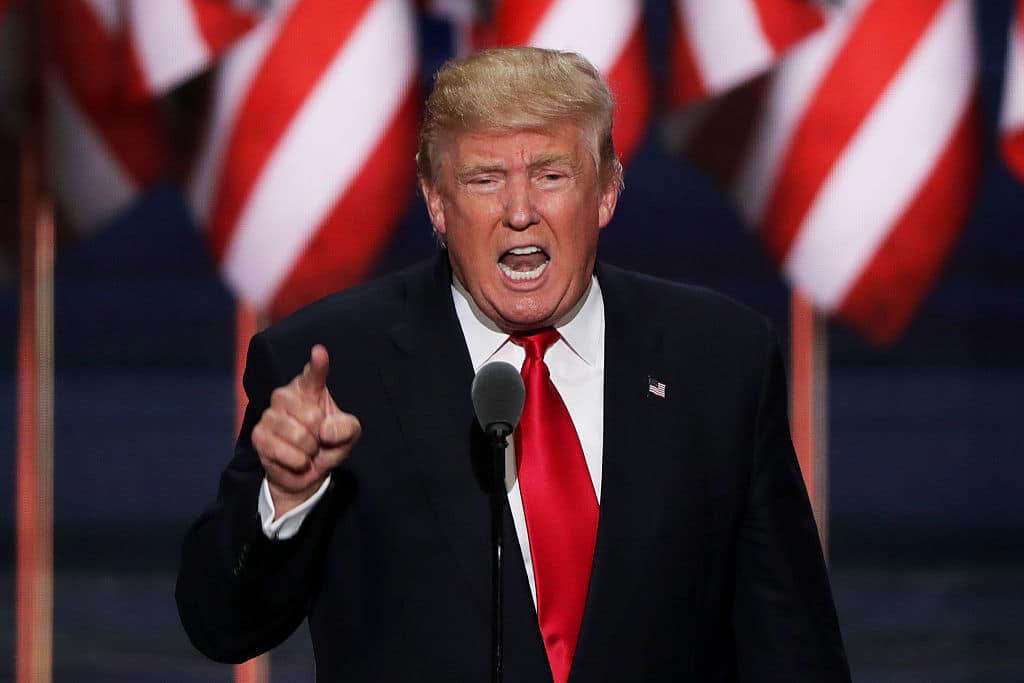Donald Trump’s “needless” ban on transgender people serving in the military harmed readiness and impacted on morale among trans service members, a new study has found.
The study, conducted by former top military physicians, found that Trump’s discriminatory ban preventing trans people from joining the military had a negative impact on recruitment and contributed to stigmatisation among trans service members.
“The transgender ban has harmed military readiness across the board,” said Alan Steinman, a former US Coast Guard director of health and safety and retired rear admiral.
Steinman, one of six authors of the new study, continued: “That’s what happens when the military needlessly discriminates against people who are qualified to serve.”
The trans military ban, introduced by Donald Trump, had numerous negative consequences.
The study’s findings come from public statements from military officials, interviews with trans service members, data from surveys and conversations with staff at service academies, according to Stars and Stripes.
Published by the Palm Centre, a research institute that studies issues around LGBT+ personnel in the military, the study found that Trump’s trans military ban had numerous adverse consequences.
Trans service members told the study’s authors that they were “targeted for unfair treatment, stigmatised and devalued” after Trump’s ban was imposed
An unnamed trans Navy aviation electronics technician told the study’s authors: “Before the ban, the Navy’s stance was that transgender people are real people and they have a status and we’re going to help them transition to what they need to be so they can continue to serve.
The transgender ban has harmed military readiness across the board.
“But now that the ban has been reinstated, there’s no longer anyone trying to accept us anymore.”
Meanwhile, trans service member Alivia Stehlik, an army officer at Fort Carson in Colorado, said of the ban: “It’s telling the world you don’t care about soldiers. Let us do our jobs, and if we can’t meet the standards, then we need to leave.
“But the standards shouldn’t be different for us.”
The study’s authors said the ban had impacted on the military’s ability to recruit new service members by making an entire cohort of people ineligible for consideration.
The authors also suggested that the ban may have deterred cisgender people from joining the military due to a perception that the forces are intolerant and hostile to minority groups.
Joe Biden has pledged to reverse the ban.
Donald Trump first announced on Twitter in July 2017 that he would be banning trans people from serving in the military. The ban came into force in April 2019 following a series of legal challenges, and plunged trans service people into uncertainty and fear in the process.
Writing on Twitter at the time, Trump said: “Our military must be focused on decisive and overwhelming … victory and cannot be burdened with the tremendous medical costs and disruption that transgender in the military would entail.”
President-elect Joe Biden previously pledged to reverse Trump’s ban on trans service members on his first day in office.
